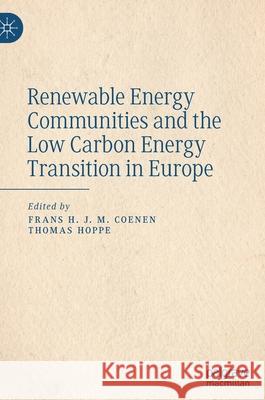Renewable Energy Communities and the Low Carbon Energy Transition in Europe » książka
topmenu
Renewable Energy Communities and the Low Carbon Energy Transition in Europe
ISBN-13: 9783030844394 / Angielski / Twarda / 2022 / 308 str.
Renewable Energy Communities and the Low Carbon Energy Transition in Europe
ISBN-13: 9783030844394 / Angielski / Twarda / 2022 / 308 str.
cena 483,04
(netto: 460,04 VAT: 5%)
Najniższa cena z 30 dni: 462,63
(netto: 460,04 VAT: 5%)
Najniższa cena z 30 dni: 462,63
Termin realizacji zamówienia:
ok. 16-18 dni roboczych.
ok. 16-18 dni roboczych.
Darmowa dostawa!
Kategorie:
Kategorie BISAC:
Wydawca:
Palgrave MacMillan
Język:
Angielski
ISBN-13:
9783030844394
Rok wydania:
2022
Wydanie:
2021
Ilość stron:
308
Waga:
0.51 kg
Wymiary:
21.01 x 14.81 x 1.91
Oprawa:
Twarda
Wolumenów:
01
Dodatkowe informacje:
Wydanie ilustrowane











